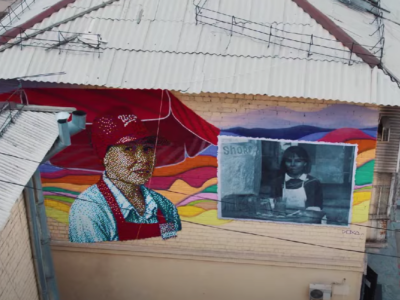Lesbian, gay, bisexual and transgendered persons are still facing discrimination in Armenia and much of the rest of the South Caucasus, a new groundbreaking two-year study by the Council of Europe (CoE) on the situation across member states has found. In addition to being the last member state to decriminalize homosexual male sex, Armenia, which joined the CoE in 2001, does not recognize same-sex marriage or partnerships and adoption rights for LGBT persons, notes Unzipped: Gay Armenia.
In some member states, being gay or lesbian is viewed as a “betrayal” of national values and unity. Such arguments may be grounded on a specific understanding of the nation or the state which aims to preserve the homogeneity of the nation. For example, an interlocutor from the authorities explained that in Armenia being homosexual is often seen as disloyal to the traditional values of the Armenian people.
Armenia's neighbors, Azerbaijan and Georgia didn't fare too well CoE's report, either. When it comes to having gay neighbors, Turkey and Armenia both tied with 87 percent of the population saying they did not want to have a gay or lesbian neighbor, according to respective surveys with unknown methodologies. In Georgia, the figure was 84 percent. A 2009 incident is highlighted with regards to LGBT rights in Azerbaijan.
In Azerbaijan during 2009 police raided bars which LGBT persons visit and arrested almost 50 people. Police reportedly held the individuals and threatened to expose their sexual orientation publicly unless they paid a bribe. A film documentary from Azerbaijan in which several people testify about their experiences also points to such incidents of blackmail.
While Armenia's place at the bottom of the table when it came to decriminalization of gay male sex isn't anything to be proud of, says Unzipped, there's room for hope when it comes to progress for LGBT rights:
Let's be among the first within post-Soviet countries to start implementing equality and human-rights-for-all legislative and social changes. Dreaming? May be. But no one can deprive me of dreams. Especially if they are potentially achievable.
Earlier this month, Public In Need of Information and Knowledge (PINK) signed a historic memorandum with Armenia's Human Rights Ombudsman on protection of LGBT rights, the NGO wrote in its blog. While Istanbul celebrates its 19th LGBT Pride Week, including a much-anticipated parade, the blog Le Retour in 3 Parts advocates why Yerevan needs a similar celebration:
In Yerevan, I have met straight people who hang out with queers, who are tolerant (as much as I hate this word), who support equal rights for all peoples. These people would stand out against injustice in any form and if someone attempted to physically hurt another person because he was gay, they would be up in arms in a second to defend him.
But too often I find that this “tolerance” has a limit, a boundary which cannot be crossed. Sometimes this limit has to do with queers raising or adopting kids, sometimes it has to do with gay marriage and sometimes it's just simply being out as queer. And then there's the disparity when it comes to men and women (and let's not even talk about the disparity when it comes to acceptance of sexual preference vs. acceptance of gender identity): Too often in Yerevan (as I have no doubt elsewhere) I have come across straight guys who say they have no problems with lesbians but thinking about two men having sex is just disgusting (զզվելի) and unnatural (բնական չի).
[…]
But to get back to the title of this post, why Yerevan needs a pride parade: even the Well-Intentioned, Tolerant guys, even the human rights defenders and activists, even those who will stand beside us and be our allies and supporters — even these groups of people don't realize what it means to be queer and live in this society, why we need to be reclaim space and why even though he may be tolerant, deep down he thinks that being gay is unnatural, that queers shouldn't raise kids, we shouldn't marry or attend church, and that really everything would be so much better if we didn't exist and complicate his world.
There are 47 states that have membership in the CoE and all are signatories of the European Convention on Human Rights, an international treaty drafted in 1950 in which all CoE member states are party to.







4 comments